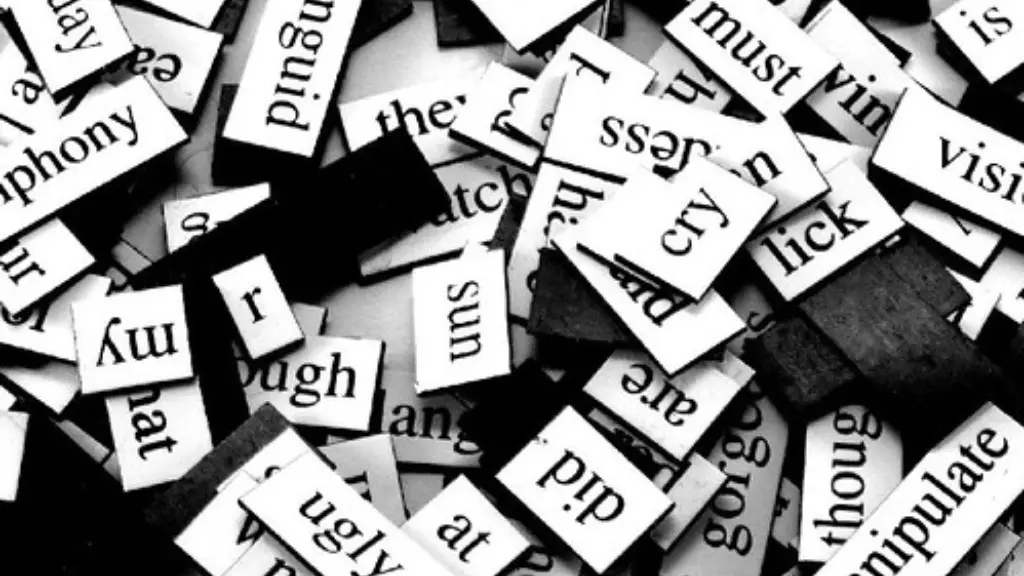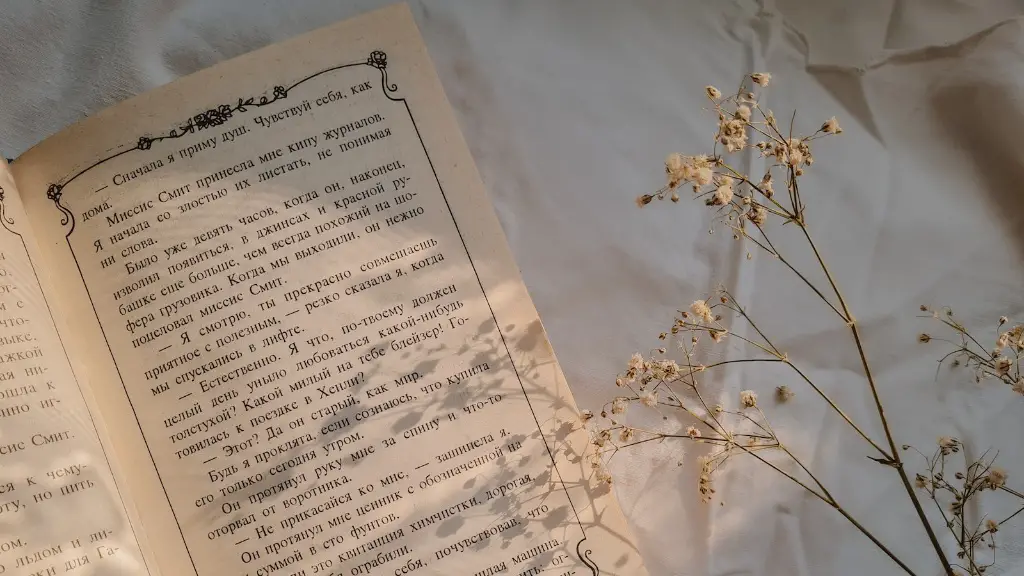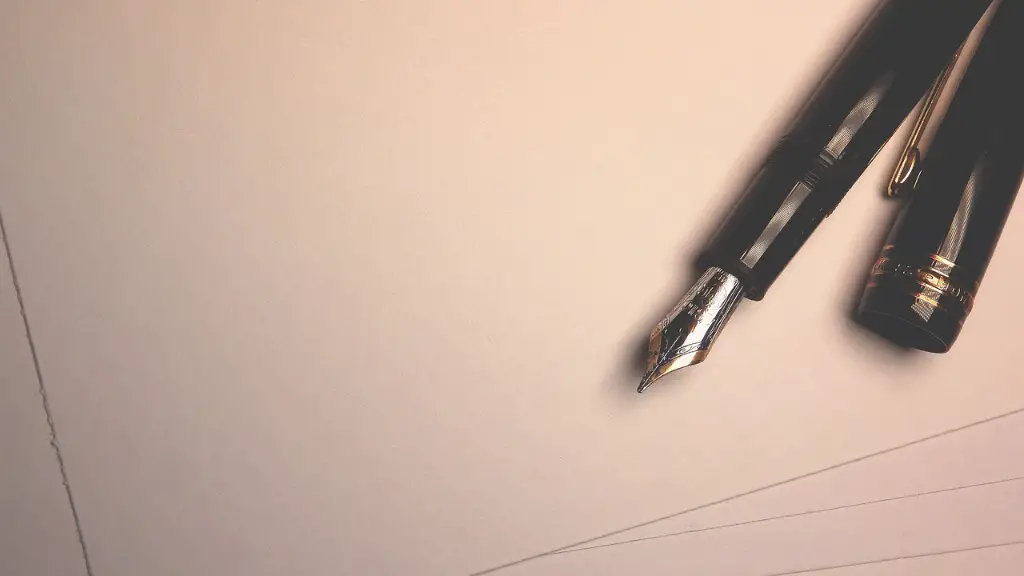Poetry has and always will captivate audiences around the world, bringing them on a journey of introspection, emotion and creativity. Praising someone for the work can be a daunting task but with the right approach and some understanding of what’s involved it can be a rewarding experience for both parties. Let’s take a look at how to go about praising someone’s poetry.
The first thing to understand is that when praising someone’s poetry, it’s important to be specific. Make sure to point out certain elements that you think works, such as: the tone of the poem, the emotions conveyed, the structure and imagery used. This will show that you’ve read the poem and have taken the time to consider it in detail. If you have any knowledge of poetry, or similar topics such as literature, feel free to share this knowledge. This will go a long way in proving to the author that you understand and appreciate their work.
It’s also important to focus on the right things. Don’t simply praise the poem for its charming words but rather for its impact. How does it make you feel? What emotions does it evoke? What does it make you think of? As Wally Brown put it, ‘poetry is an art of glancing impressions from many speeds, and then blending them into images’. Addressing these key aspects – emotions, thought-provoking ideas and perspective – will help you to appreciate the complexities within the poem and show the author you understand what they’re trying to achieve.
When praising someone’s poetry, provide them with constructive feedback and suggestions. This will show that you understand their creative process, and give them feedback on how to improve. Instead of just saying something is wrong, try to help the author come up with solutions. This will encourage them to keep writing, in the hope that they can use your advice to write something better or continue exploring their ideas.
Finally, let the author know that you see their potential. A few kind words can go a long way and can help to build the author’s confidence. You might even be surprised at how much your words of encouragement can influence their work and help them to grow.
The Differences between Good and Bad Critique
One of the key things to remember when praising someone’s poetry is to make sure you offer genuine, meaningful compliments and criticism. If you’re going to point out something that doesn’t work, make sure you also suggest ideas for improvement. It’s okay to provide constructive criticism but also remember to keep it positive. Don’t get into nitpicking or critiquing the poem for mere technicality.
At the end of the day, it’s about the author’s experience and their personal opinion. A lot of the time people just want to hear that what they wrote was good and that someone else got something out of it. Being too critical can be demoralising and make them doubt themselves, so it’s best to avoid it. Make sure to focus on the positive aspects of the poem, find something you can praise, and suggest areas they could work on without being overly judgemental.
Creating a Safe and Encouraging Environment
When trying to build a supportive and encouraging atmosphere, it’s important to create a safe space where authors can be open and honest with their work without fearing judgement or criticism. You can do this by setting the tone from the outset, and by avoiding making any implications that could be seen as negative or as personal attacks. Let them know that criticism is welcomed, but it must be done in a respectful and supportive way.
It’s also important to be patient. Poetry is a complex form of writing, and it can take some time for the reader to get a complete picture of what the author is trying to say. Being patient and taking the time to understand their work will help to keep a positive atmosphere, allowing the author to feel appreciated.
Being Authentic and Engaging
Another important factor is to be authentic and engaging when praising someone’s poetry. Make sure to provide specific and meaningful comments that come from a genuine place, rather than being vague and unfocused. You might want to start off by saying what inspired you to read the poem or what hooked you in. Let them know how you felt as you read it, and point out any ideas or images that stood out to you.
This will provide the author with valuable feedback that can help to shape their writing. Engaging with the poem and being honest is a great way to show that you genuinely appreciate the author’s work and are invested in their craft. That, at the end of the day, is all that matters.
Expressing Gratitude
Finally, it’s important to show your appreciation for the poem. No matter how small, expressing gratitude can go a long way in reassuring the author that you values their writing. You might want to go as far as to thank them for the poem, or to express your admiration for the hard work and creativity they’ve put in to it. Showing that you took the time to read the poem and appreciate it will demonstrate the level of respect you have for the author and their craft.
Understanding the Author’s Intent
One of the best ways to appreciate someone’s poetry is by getting to the heart of their work and understanding their intent. This will demonstrate to the author that you’ve taken the time to consider the poem and that you understand the complexity of their craft. Ask yourself: What are they trying to say? What message are they conveying? How does it make me feel? Answering these questions will help you to gain more insight into the author’s perspective and to appreciate their work.
Creating Lasting Connections
When you’ve finished reading the poem, it can be helpful to take a moment to reflect on your experience and consider what it meant to you. It can also be useful to add your own thoughts or questions to the conversation, as this will help to build a lasting connection with the author. Ask yourself: What ideas did this poem spark in me? What can I learn from this? Connecting with the poem on a personal level will help to demonstrate that you have taken the time to read it, to appreciate its value, and that you understand its meaning.
Developing Your Poetry Appreciation Skills
Praising someone’s poetry is a valuable way to show your appreciation for their craft and to connect with the author. To get the most out of this experience, it is important to use the right approach. When praising someone’s poetry, focus on what works, provide constructive criticism, create a safe and encouraging environment, be authentic and engaging, and express your gratitude. Taking the time to understand the author’s intent and connecting with the poem on a deeper level will help to deepen your appreciation for the poem, and to ultimately create a lasting impression.
The Value of Practicing Poetry Appreciation
Reading, appreciating and praising poetry is an important skill to learn and to practice. It can help to develop a deeper understanding of one of the most powerful forms of writing, bring people together, and to foster meaningful connections. It can also help to break down barriers, challenge assumptions, expand your horizons, and bring a new level of appreciation for the power of words.
Additionally, appreciating poetry can provide a much needed respite from everyday life. It can be a safe place to express your thoughts, explore emotions, practice self-reflection and to gain a better understanding of yourself and the world around you.
Useful Tools and Resources to Help Develop Poetry Appreciation
If you’re looking to further your appreciation of poetry, there are a number of great tools and resources available. From reading directories and forums, to writing and study guides – there is something to suit every preference. There are also numerous social media platforms dedicated to the discussion and appreciation of poetry, such as Instagram, Twitter and even Reddit. To further your appreciation of poetry, make sure to take the time to take advantage of these resources and explore the world of poetry further.
The Benefits of Poetry Appreciation
Appreciating poetry can bring a number of great benefits. Not only does it encourage creativity and build self-confidence, but it also helps to develop critical thinking and communication skills. Taking the time to appreciate someone’s work is also a powerful way to show respect and support for the author, and to make a lasting impression.
Poetry appreciation is a great way to explore the depths of the written word, to connect with others and to cultivate a genuine appreciation for the art form. Learning how to appreciate poetry is a valuable skill that can be rewarding, both for the author and the reader.





